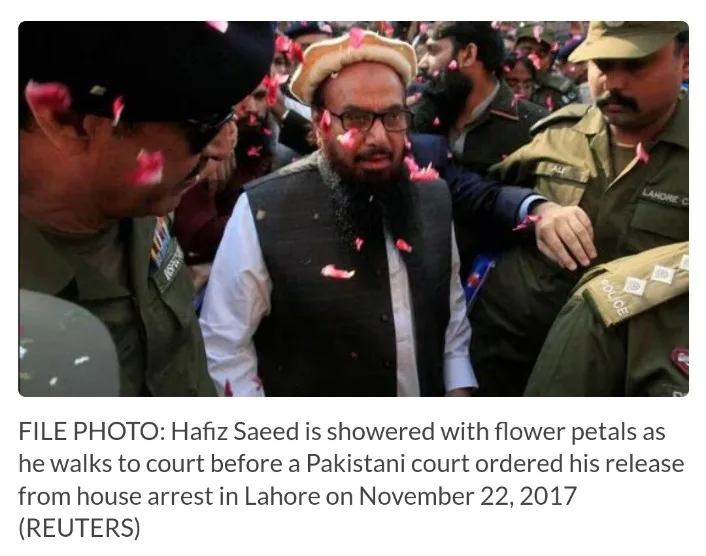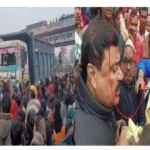In a significant development, India has officially requested Pakistan to extradite Hafiz Saeed, the founder of Lashkar-e-Taiba (LeT) and the alleged mastermind behind the 2008 Mumbai terrorist attacks. The request, made through the Indian High Commission in Islamabad, comes despite the absence of an extradition treaty between the two neighboring countries, as confirmed by Arindam Bagchi, the spokesperson for the Ministry of External Affairs.
The call for extradition was initiated “some weeks ago,” and it specifically seeks Saeed to face trial in India for his involvement in various acts of terrorism. Saeed, convicted in at least five cases of terror financing since 2020, has never been charged by Pakistani authorities regarding any LeT attacks in India.
The request coincides with reports of Saeed’s son, Talha Saeed, planning to contest Pakistan’s upcoming general election. Bagchi commented on this, stating that the mainstreaming of radical terrorist groups participating in elections is not new and has been part of Pakistan’s state policy for an extended period.
The move highlights India’s ongoing efforts to address the activities of individuals wanted for criminal or terrorist actions, despite the absence of a formal extradition treaty with Pakistan. The request reportedly follows new developments in one of the cases against Saeed, unrelated to the Mumbai attacks, with emerging evidence prompting the extradition plea.
Pakistan’s Foreign Office Spokesperson, Mumtaz Zahra Baloch, confirmed the extradition request, clarifying that it pertains to a so-called money laundering case. However, she emphasized the lack of a bilateral extradition treaty between the two countries.
Bagchi expressed concern about the normalization of radical elements participating in elections, noting its longstanding presence in Pakistan’s state policy. He underlined the potential security implications for the region, stating that India will closely monitor all developments affecting national security.
Hafiz Saeed, who has received prison terms for terror financing convictions, was detained under pressure from the Financial Action Task Force (FATF) and Western powers. The United States had offered a $10 million bounty for Saeed in 2012. Both LeT and its front, Jamaat-ud-Dawah (JuD), have been banned by the US and the UN.







